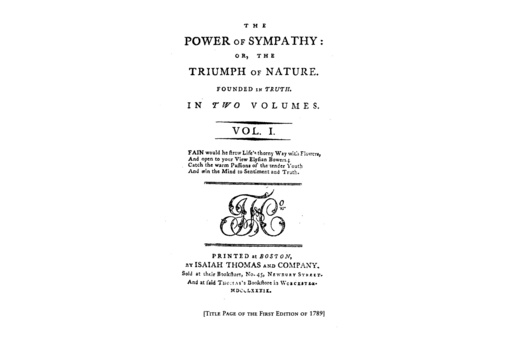In the winter of 1789, around the time George Washington was elected the country’s first president, a Boston-based printer quietly launched what is widely believed to be the first American novel. William Hill Brown’s “The Power of Sympathy” was published anonymously and is approximately 100 pages long, focusing on a tragic love affair between two young individuals in New England. The novel addresses themes such as seduction and the economy of human life, resonating with the aspirations and anxieties of a young country.
The narrative by Brown reflects societal concerns of the time period, including reflections on class, temperament, and regional differences. Brown, an outspoken Federalist, intertwined the behavior of women with the stability of society. The novel warns against the corrupting influence of pleasure and the importance of moral principles. Brown’s work also dives deep into the debate on the impact of novels on moral values and societal norms, reflecting concerns that continue to this day regarding the influence of literature on readers.
During Brown’s lifetime, novels were not highly regarded as an art form and were mainly valued for their entertainment or moral teachings. Even though “The Power of Sympathy” was considered the first American novel in the 19th century, it was only in the 20th century that scholars debated and agreed on the criteria for this distinction. The novel gained recognition after being serialized in a magazine in the late 19th century, thanks to the revelation by Brown’s niece that he was the true author.
William Hill Brown passed away in 1793 at the age of 28, likely due to malaria, without achieving widespread fame or recognition. Despite being acknowledged as the first American novelist, his work remains more of interest to specialists and collectors. Brown’s legacy is not marked by memorials, historical sites, or literary societies in his honor, and his burial place remains unknown to this day.
